In an era where cyber threats are more sophisticated and frequent than ever, organizations need reliable, comprehensive endpoint security solutions. Checkpoint Endpoint Security has established itself as a leader, offering advanced threat prevention, data security, and centralized management tailored for diverse business environments. This platform is designed for security professionals, CEOs, and IT teams committed to safeguarding their digital assets effectively.
What is Checkpoint Endpoint Security?
Checkpoint Endpoint Security is a unified security suite that combines data protection, network security, advanced threat detection, and response capabilities into a single, easy-to-manage platform. It leverages AI-powered threat prevention, behavioral analytics, and automated incident response to protect endpoint devices—ranging from desktops and laptops to mobile devices and servers.
Key Components:
-
Data Security: Protects sensitive information at rest, in transit, and in use.
-
Network Security: Shields network connections and prevents unauthorized access.
-
Advanced Threat Prevention: Detects and blocks zero-day attacks, malware, ransomware, and unknown threats.
-
Endpoint Detection & Response (EDR): Provides continuous monitoring, forensic analysis, and automated response.
-
Remote Access VPN: Ensures secure remote connectivity for distributed teams.
-
Unified Management Console: Simplifies administration—manage all endpoints from a single, centralized dashboard.
Why Choose Checkpoint Endpoint Security?
As cyberattacks grow in sophistication, traditional security solutions fall short. Checkpoint’s platform offers several compelling advantages:
1. Comprehensive and Unified Protection
All-in-one security management eliminates the need for multiple separate tools, reducing complexity and ensuring consistent policy enforcement across all endpoints.
2. Proven High Detection Rates
Checkpoint’s solutions have consistently demonstrated top detection accuracy, often achieving 100% detection in industry-standard evaluations like MITRE ATT&CK®.
3. Behavioral AI & Zero-Day Protection
Utilizes more than 60 AI engines powered by Checkpoint’s Threat Cloud, providing real-time prevention against unknown threats and zero-day attacks.
4. Simplified Management & Deployment
The single console interface streamlines security operations, making it easier for security teams to configure policies, monitor threats, and respond swiftly.
5. Mobile and Remote Workforce Security
Checkpoint Mobile and Capsule Workspace secure mobile endpoints, ensuring remote work does not introduce vulnerabilities.
Features and Capabilities
Threat Prevention & Detection
-
Automatic malware and ransomware blocking.
-
Behavioral risk analysis using AI engines.
-
Real-time intrusion prevention and anomaly detection.
Endpoint Detection & Response (EDR)
-
Continuous monitoring of endpoint activities.
-
Active forensic analysis to trace attack origins.
-
Automated containment and quarantine of malicious processes.
Centralized Management
-
Single unified console for policy enforcement.
-
Simplified deployment across Windows, Mac, Linux, mobile, and virtual environments.
-
Policy customization for various operational needs.
Mobile & Remote Security
-
Harmony Mobile defends against mobile-specific threats in real time.
-
Capsule Workspace creates encrypted containers for secure app and data management.
-
Remote Access VPN ensures secure remote connectivity, with MFA and encryption.
Latest Innovations
-
AI-powered vulnerability detection and patch management.
-
Mobile threat defense with zero-touch deployment.
-
AI-based data classification for compliance in flexible work environments.
Source: Check Point Data Sheet
Industry Recognition and Effectiveness
-
MITRE ATT&CK Evaluation: Checkpoint’s Harmony Endpoint achieved 100% detection across several industry-standard testing techniques.
-
Market Reports: Recognized as a major player in IDC MarketScape, praised for unified management and threat detection prowess.
-
Customer Feedback: Highly rated for ease of use, reliable detection, and low impact on device performance.
Source: Check Point Cyber Security Report
Practical Tips to Maximize Checkpoint Endpoint Security
-
Regularly Update Policies: Keep your security policies aligned with emerging threats.
-
Leverage Automation: Automate responses for faster containment of threats.
-
Integrate with Broader Security Ecosystem: Connect with SIEM, SOAR, and threat intelligence tools.
-
Educate End Users: Train employees on mobile security and recognizing phishing attempts.
-
Perform Routine Audits: Regularly review security logs and incident reports.
Final Thoughts
Checkpoint Endpoint Security stands out as a comprehensive, high-performance platform that adapts to the evolving cybersecurity landscape. Its unified management, AI-driven threat detection, and mobile protection capabilities make it ideal for organizations seeking robust endpoint defense in a complex threat environment.
Investing in the right endpoint security is no longer optional—it is a strategic necessity. To ensure your organization stays ahead of cybercriminals, explore a demo or consult with a Checkpoint security expert today.
Frequently Asked Questions (FAQs)
Q1: What makes Checkpoint Endpoint Security different from other solutions?
It offers a unified platform integrating EPP, EDR, and XDR capabilities, with over 60 AI engines powering real-time threat detection and prevention[checkpoint.com].
Q2: Can Checkpoint Endpoint Security protect mobile devices?
Yes, Harmony Mobile specifically defends Android and iOS devices from malicious apps, network infiltration, and SMS-based threats.
Q3: How easy is it to deploy Checkpoint solutions?
The platform features a streamlined, single-console deployment that can be configured quickly across various environments—on-prem and cloud.
Q4: Does it support remote and hybrid workforces?
Absolutely. The platform’s VPN, mobile security, and cloud management tools safeguard remote endpoints effectively.
Q5: How frequently are updates and threat intelligence refreshed?
Checkpoint updates threat intelligence continuously via its Threat Cloud, ensuring defenses against emerging threats.
Q6: What kind of organizations benefit the most?
Large enterprises, SMBs, and organizations with remote workforces seeking a unified, easy-to-manage security solution.
Q7: Is Checkpoint Endpoint Security compliant with regulations?
Yes, its advanced data protection and auditing features support GDPR, HIPAA, and other standards.






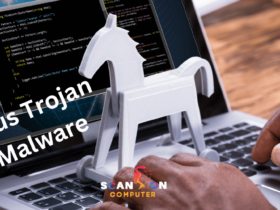

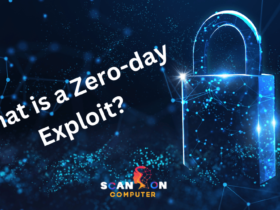
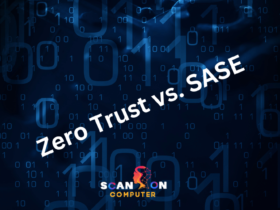
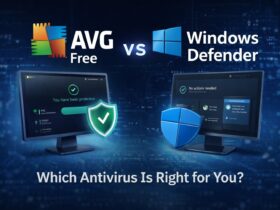


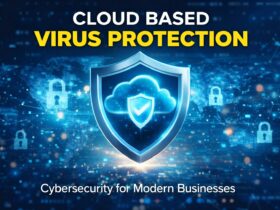
Leave a Reply
View Comments